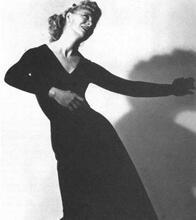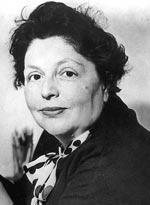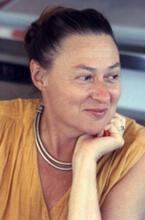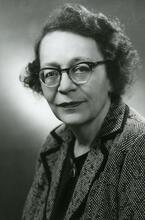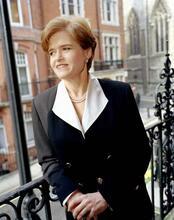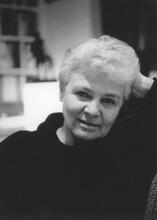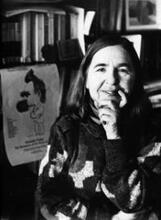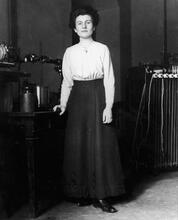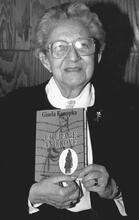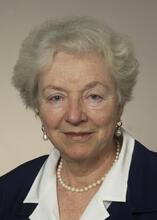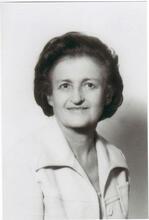Anna Jacobson
Born in Lüneburg, Germany, Jacobson earned her PhD from the University of Bonn before immigrating to the US in 1922. She began teaching at Hunter College, earning respect as a scholar of German literature and as an expert on Thomas Mann. In 1938, the administration questioned whether it was appropriate to teach German to a predominantly Jewish student body. Jacobson mobilized the department to defend the importance of German culture and its distinction from the current struggle against Nazism. She incorporated German literature into world studies courses, organized events honoring German authors at Hunter, and lectured to audiences in person and over the radio. She remained in her position at Hunter until her retirement in 1956.
Article
As a member of the faculty in the German department at Hunter College, Anna Jacobson fought to preserve the study of German language and literature during the 1930s and 1940s, when many felt that it was inappropriate for American students to study the language of the Nazis. During her tenure as chair of the German department from 1947 to her retirement in 1956, she worked to present the richness of German thought and writing to Hunter students and to the American public.
Anna Jacobson was born on January 10, 1888, in Lüneburg, Germany, to Arnold and Clara (Heinemann) Jacobson. She was a cousin of the philosopher Fritz Heinemann. She received diplomas from the University of Nancy in 1908 and a PhD from the University of Bonn in 1917.
She emigrated to the United States in 1922 and joined the faculty of the German department at Hunter College as instructor in 1924. Her publications included books and articles on Hermann Hesse, Charles Kingsley, Walt Whitman, Franz Werfel, Thomas Mann, Heinrich Heine, and Richard Wagner in both German and English. By 1941, she was a respected scholar and an expert on Thomas Mann.
Jacobson earned the rank of assistant professor in 1927, associate professor in 1934, and full professor in 1950. She was active in the Modern Language Association, served as president of the Hunter College chapter of the American Association of University Professors, from 1936 to 1938, and president of the New York City chapter of the American Association of Teachers of German, from 1949 to 1951.
In 1938, Jacobson found herself caught in the controversy over whether Hunter College—an institution with a student body of predominantly Jewish women—should continue to teach what critics increasingly referred to as the “language of Hitler.” The college administration, responding to anti-German sentiment, threatened several times to dissolve the department, and in the fall of 1941 assigned an instructor in Hebrew to the department. Jacobson, who served as acting chair during 1941 and 1942, pressed her colleagues to defend the importance of German literature and culture and its distinction from the Nazi regime. To this end, she was active with the National Conference of Christians and Jews beginning in 1940 and led her colleagues and students at Hunter to organize fund-raising events to aid refugees from Germany.
Jacobson worked to integrate the study of German literature into new humanities offerings in the college curriculum at Hunter, including a course on world literature that began in the fall of 1943. She lectured widely to nonacademic audiences ranging from women’s clubs to the listeners of Voice of America radio broadcasts. She organized many important events in celebration of German authors at Hunter College, including four lectures by Thomas Mann during the 1940s, a commemorative concert for Heinrich Heine in 1947, and a Goethe exhibit in 1949.
Although Anna Jacobson had become an American citizen by 1937, after her retirement in 1956 she lived for many years in Switzerland, where she died on June 26, 1972.
Selected Works
Hermann Hesse: Der Novalis, Der Zwerg, editor (1948).
Kingsley’s Beziehungen zu Deutschland (1917).
Jacobson, Anna. Archives, and Minutes of departmental meetings, 1914–1962. Department of German, Hunter College, NY.
Thomas Mann, Katia Mann—Anna Jacobson. Ein Briefwechsel. Frankfurt am Main: Verlag Vittorio Klostermann, 2005.
WWIAJ (1928, 1938).

